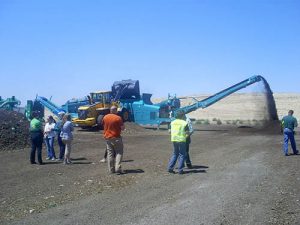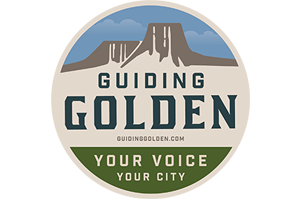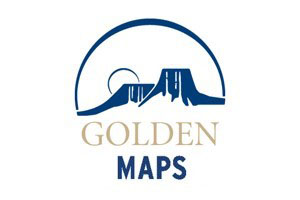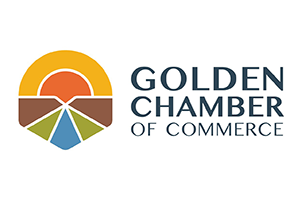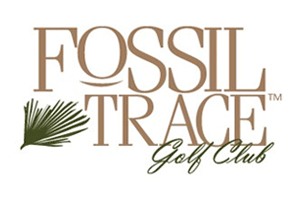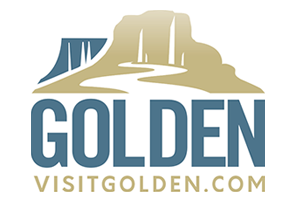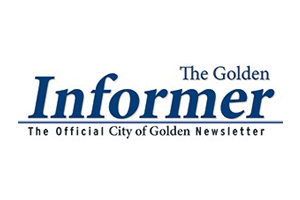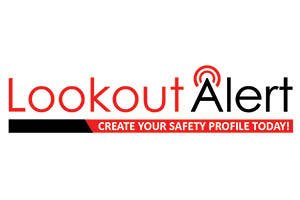Goals
To reduce total landfill contribution by 40% by 2030. This means:
- Recycle 80% of recyclables by 2030.
- Compost 80% of compostables by 2030.
- Reduce total trash by 20% by 2030.
- Strive for zero waste in municipal operations by 2030.
Annual Community Waste Metrics
Annual metrics relating to Golden’s waste can be found here.
Important Change to Golden Organics Collection Program
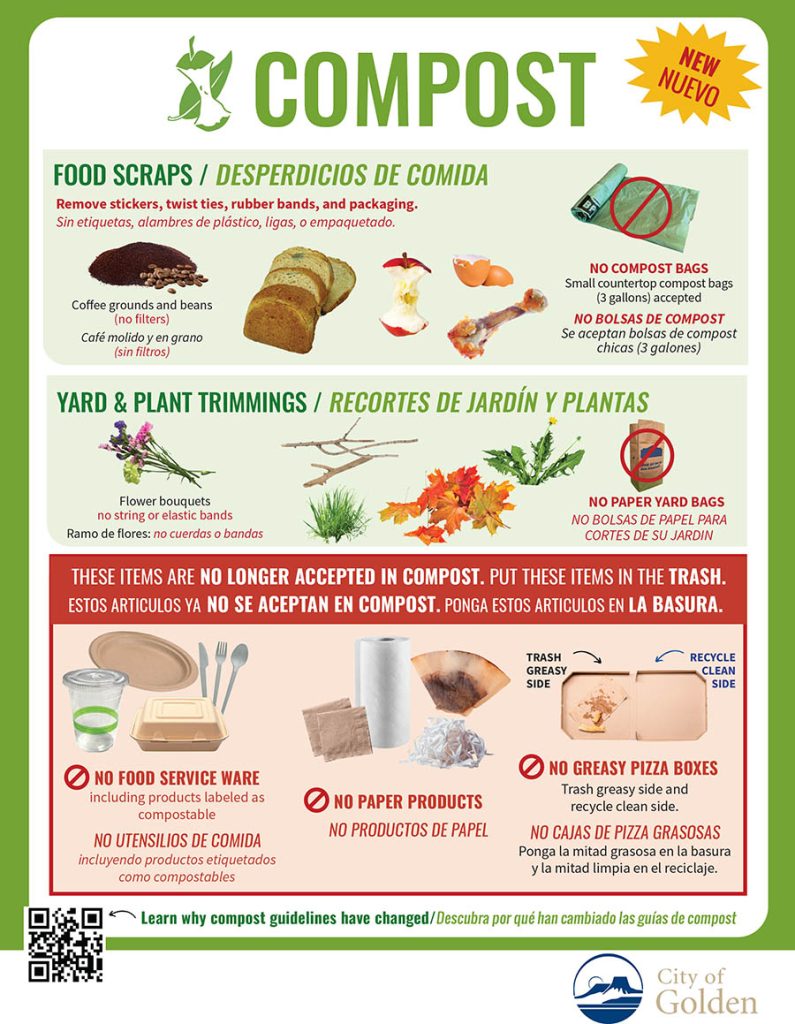 Accepted materials in residential and commercial compost collection by Golden’s organics recycler, A1 Organics, are now limited to the following two categories ONLY:
Accepted materials in residential and commercial compost collection by Golden’s organics recycler, A1 Organics, are now limited to the following two categories ONLY:
Food Scraps
- Produce, bread, bones, meat, cheese, eggshells, coffee grounds (but NO coffee filters or tea bags), etc.
- Please REMOVE ALL stickers from produce, as well as rubber bands, twist-ties and anything that is NOT food.
Yard & Plant Trimmings
- Leaves, twigs, small branches, grass and yard trimmings.
Materials NO LONGER ACCEPTED:
- Paper products: Paper towels, napkins, coffee filters, shredded paper, soiled paper bags or boxes, etc.
- Certified Compostable Products: Cups, lids, utensils, straws, to-go containers, packaging, etc.
- Bags: Certified compostable bags and paper bags are no longer accepted with the ONLY exception of 3-gallon certified (CMA Approved) compostable bags used to collect kitchen food scraps. Residents are encouraged to skip the use of bags altogether and simply clean compost bins more regularly.
Why is the change happening?
The change is necessary to maintain the quality of finished compost product produced through the compost program and reduce the issue of contamination in residential and commercial organics recycling. As food and yard scrap collection increases, a growing percentage (currently at 10%) of material coming to A1 Organics is too contaminated to process effectively and meet the quality standards for finished compost. A1 Organics is reducing the accepted material list as the first step in eliminating contamination.
Keeping food scraps and yard trimmings out of the landfill helps prevent harmful methane emissions while creating a valuable soil amendment that helps Colorado farms and landscapes build healthy soils that absorb carbon dioxide from the atmosphere, reduce water and chemical use, and grow nutritious foods. Please help us by doing your part to remove contamination from this invaluable resource stream.
Learn more on the A1 Organics website.
Curbside Appliance & Mattress Recycling Program
The City of Golden now offers curbside appliance and mattress recycling to all single family and townhomes in Golden.
Acceptable appliances are limited to full size:
- washing machines
- dryers
- dishwashers
- refrigerators
- freezers
- stove/ovens
*Items not listed here (including microwave ovens and small refrigerators) are not allowed and will not be picked up.
Mattress & Box Spring Pick-up Exclusions:
- NO wet or frozen mattresses will be picked up.
- NO mattresses or box springs with any sign of bed bugs (black dots on the bed) will be picked up.
Please fill out the Curbside Pickup Form OR call (303) 953-5800 and leave your NAME, ADDRESS, PHONE NUMBER, and TYPE OF ITEM for pick-up. Pickup is the following TUESDAY for calls received by Thursday of the prior week. Calls received after Thursday will be scheduled for the next week. City staff will call to confirm the date.
Where do my recyclables go? How do I know they are being recycled?
Steps in Processing Golden Recylable Materials:
- All mixed recyclable materials collected in bins throughout the City of Golden are picked up by trucks that haul the material to a Materials Recovery facility (MRF) in Denver.
- Recyclables are dumped and then put onto conveyor belts that weave their way through the facility, passing by human sorters and a variety of high-tech machines designed to separate the materials and remove contamination.
- After sorting, materials are placed into appropriate bins.
- All materials (except for glass) are put into a baling machine where they are smashed down and wrapped with wire in bales (like bales of hay) and shipped to manufacturers throughout the country to be turned into new products.
Yes!
In recent years, innovative technologies have made traditionally unrecyclable paper cups, recyclable.
At the Materials Recycling Facility (MRF), paper cups are separated by a machine that uses Artificial Intelligence (AI) to identify the correct objects and a robotic arm picks them out and places them in their appropriate bin at super-fast speed!
Cups are then baled and shipped to a manufacturer in Iowa that turns them into a construction material known as “wall board,” or to other paper mills around the country that can separate the paper from the plastic lining.
But remember: REDUCE, REUSE, RECYCLE! It is still better to use a reusable mug or container whenever possible.
When you toss glass into your recycling bin, it heads to a Materials Recovery Facility (MRF). At the MRF, glass is separated using a machine that directs lighter materials in one direction, allowing the heavier glass to fall onto a separate conveyor belt.
The glass is then crushed to become cullet, and then machines remove contaminants such as metal, paper, ceramics, and plastics. While most MRFs end up with a final material that’s around 50% glass, some facilities with optical sorting machines can achieve cleaner cullet percentages of 70 to 90%.
In Colorado, Glass to Glass is a specialized MRF for glass. It takes glass from local MRFs (up to 50% contaminated) and further screens it to produce exceptionally clean cullet. This high-quality cullet goes directly to the Rocky Mountain Bottling Company (RMBC) in Wheatridge.
RMBC processes the glass into new bottles for Coors beer, screening it one last time. Currently producing about 700 tons of bottles daily, RMBC uses 30 to 50% recycled glass, depending on the bottle color. However, most recycled content comes from out of state, contributing to carbon emissions and increased costs.
To reduce this environmental impact, it’s crucial to collect all glass in Colorado and prevent it from ending up in landfills. You can help by placing glass in your mixed recycling bin or, even better, taking it to designated glass-only containers in your area. Your contribution makes a difference in creating a more sustainable glass recycling process locally.
All Things Recycling: A Community Conversation About Waste Diversion
The City of Golden Community Sustainability Advisory Board (CSAB) recently held the All Things Recycling community event at the Buffalo Rose. Attendees had the opportunity to hear the latest information from industry experts about where our materials go, recent changes in the industry, and how families can participate in organic waste collection and other waste diversion programs. If you missed the event, check out the video from the presentations and Q & A session.
A Firsthand Look at Where Our Green Waste Goes
In the past, Golden residents have been given the opportunity to tour A1 Organics’s Class II Compost Facility in Bennett, CO. As the processor of the City of Golden’s organic waste, A1 Organics processes up to 250 tons of compost a month. This experience provided a firsthand look into the path our food and yard waste takes once it leaves Golden.
The process begins with bi-weekly collection of food and yard waste from the green-lidded carts of the City’s Pay-As-You-Throw program participants. After a transfer in Denver, the material arrives at the main hot commercial compost site in Bennett. The compost is then placed in mixing machines, which make sure there is a right combination of nitrogen (wet green materials such as food scraps, coffee grounds, and plants) and carbon (dry brown materials such as paper products, dry leaves, and branches) to create the compost. The compost is then placed in approximately a dozen, 400-foot-long “windrows” where it is turned and generates internal heat until it reaches a minimum of 131 degrees. The process takes about ten weeks.
After rigorous testing, the final product of enriched compost is sold to buyers in the landscaping and agricultural industries. Colorado King Soopers are one of the largest suppliers of compostable material and buyers of finished compost. King Soopers brings their composting effort full circle by hauling spoiled produce to the compost facility and then purchasing back the finished product for sale in their stores. This summer, look for Kroger brand bagged compost with the “Colorado Proud” logo.
Pay-As-You-Throw Residential Waste & Recycling Collection Program

PAYT, or variable-rate pricing, is based on the concept that households are billed for the collection of trash based on the amount that they throw away. Recycling service is included in the cost and the more material you divert to the recycle bin, the less you pay for monthly trash service. More information on the current program can be found in the Resident’s Guide.
History of PAYT in Golden
In 2007 the City embarked on a sustainability initiative. A public town hall meeting was held and seven community working groups were organized to address sustainability issues in several areas. The seven groups covered areas that included building, economic health, education and communications, energy, solid waste and recycling, transportation and water. These groups then made recommendations to City Council for changes that would help make Golden more sustainable and establish sustainability goals in each of the seven areas. By August of 2007, City Council had passed a resolution that established specific goals for each area of sustainability. The specific goal for solid waste and recycling is to reduce Golden’s solid waste stream contribution by 25% by 2017.
In May 2010, City Council changed residential waste collection services in Golden by allowing the City to contract for waste and recycling services for some residential properties. In June 2015, City Council reissued a new five-year waste hauling contract and selected GFL Environmental (formerly Alpine Waste & Recycling). GFL Environmental was chosen for their low prices and ability to provide current and future services required by the Golden community. Starting September 1, 2015, rates increased a modest 9% and more benefits were added to the optional green waste program. Now every household in the city may subscribe to the year round, bi-weekly green waste service. Kitchen waste is now accepted in the green waste cart.
On November 13, 2014, the Golden City Council approved Ordinance 1991 to expand Pay-As-You-Throw (PAYT) waste & recycling collection to all residential areas in Golden. This ordinance affects Homeowner Associations, Multi-family areas and Commercial properties. By January 1, 2016, all waste haulers are required to submit documentation showing compliance as part of the City’s licensing regulations, which provide for the following:
- Curbside service with pricing based on volume, with a 32-gallon minimum size and increasing increments (e.g. 32-, 64-, and 96-gallon sizing).
- Multi-family areas utilizing dumpsters would still retain dumpster service, as these containers are already priced based on volume of materials. Multi-family areas that currently receive curbside service would change to the volume-based rates.
- Provision for recycling service to be included in the total monthly cost.
- The option of rolling carts, bags, or tags to administer the service, to be determined by each hauler.
- Additional licensing requirements such as reporting of overall diversion of materials, equipment standards, and proof of insurance.
For more information on the PAYT program, view the Colorado Association for Recycling Case Study ![]() and the “Let’s Talk Trash” open house presentation
and the “Let’s Talk Trash” open house presentation ![]() .
.

